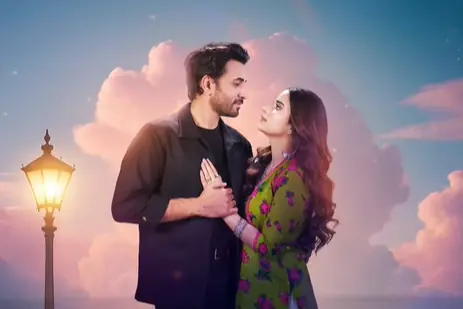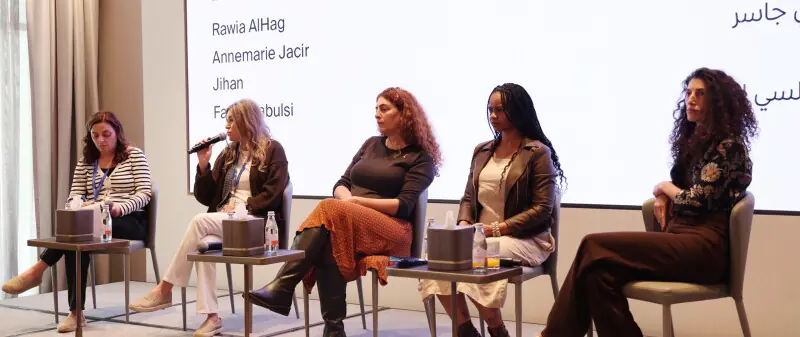I have to prove that I am more than just a good-looking actor: Ahsan Khan
For an actor who had earlier lip-synched to the songs of Akhlaque Ahmed in Sangeeta’s Nikaah (1999), Bollywood veteran Udit Narayan (under the pseudonym Faisal Bobby) in Iqbal Kashmiri’s Ghar Kab Aao Gay (2000), Shaan in Mehreen Jabbar’s 2013 remake of the 1968 classic Dil Mera Dharkan Teri and Sonu Nigam in Imran Malik’s Tere Bin Jiya Na Jaye (2005), Ahsan Khan still says that singing for him “happened out of the blue when I sang the OSTs of TV dramas Khoya Khoya Chand (music: Sohail Haider) followed by Marasim (music: Waqar Ali) and then Humdum (music: Sahir Ali Bagga).”
He is then the obvious choice to host the upcoming Indo-Pak collaboration Asia’s Singing Superstar.
“It’s an honour for me to represent Pakistan on an international platform and this competition will be no different," Ahsan said.
"Shafqat Amanat Ali Khan is one of the judges and I am sure the show will bring forward the talents of both the countries. I have always maintained that people should not merge politics with entertainment. Even in the current situation, we shouldn’t even think about boycotting a neighbouring country or its artist community.”
After his decade-long affair with TV dramas, he observes that it has undergone a major change:
“We used to copy Indian soaps shamelessly but now the Indians follow us. I plan to turn to direction as Zee Zindagi has given us a chance at exploration. It has changed the Pakistan drama industry forever and we are at par with Bollywood now. They follow our plays just like we follow Bollywood; Pakistani dramas are a craze in India right now.”
He dances, he sings, he acts, and he is now also producing TV dramas and quite possibly a film — that’s Ahsan Khan for you.
It has been a long journey for Ahsan who started his career from films at the turn of the millennium and has now matured as the leading man in television plays. Married with kids, he says he now has the stability in life to experiment further.
His last two big screen outings [Shehzad Rafique’s Punjabi flick Ishq Khuda (2013) and Syed Faisal Bokhari’s Urdu film Sultanat (2014)] didn’t fare well at the box office.
Cross-border relations

“Post-Zee Zindagi, I continue to receive a lot of offers from India but I’m presently busy with a few films in Pakistan that will have an international release. I’m already working with Indian directors in commercials so it’s only natural to venture forth into Bollywood to explore further possibilities as an actor.”
He strongly believes that those who don’t get any offers from across the border are ultimately the ones who sabotage relations between both the countries.
“They are the ones who raise ‘concerns’ about Pakistani artists dancing on Indian content and pass judgment on those who are trying to prove their mettle in India. I admire Ali Zafar and Fawad Khan for making us proud, what fabulous work the two have done against all odds!"
He adds, "I am against all those who don’t get work across the border and then criticise younger artists in an attempt to hide their embarrassment and frustration. Following in the footsteps of veterans such as Nadeem saheb, Mohammad Ali bhai and Zeba bhabhi, I see no harm in working in Bollywood either.”
And as for dancing on Indian numbers...
“We dance on Indian songs because our songs don’t have the same feel yet. Dancing is one of the things actors have to go out of the way to perform. It took me years to make people accept me as a dancing actor; before me there were hardly any actors who performed on stage. Now everyone is doing it!
He continues, "Dancing on a stage has a different feel; when I dance it’s like I’m on top of the world! So when some colleagues come up to me and say ‘you shouldn’t dance on Indian content’ my only answer to them is ‘then you be the one to provide us with local dance numbers’. It’s a case of sour grapes and nothing else.”
Good cop, bad cop

Ahsan says he loves playing the good guy on TV, who either falls for the right girl or the wrong girl falls for him. But isn’t it too repetitive, considering every other drama has the exact same story these days?
“Every country has its own set of drama and filmmaking. In this region, handsome men have always been portrayed on screen as saviors just like most of the time women have been shown as oppressed. Men have been shown to take on situations, much like superheroes but without the powers."
"We can’t change that and that’s why most of the work done these days follows the same pattern. I can’t complain since I get to play the guy who gets the girl,” he concedes.
But doesn’t it limit his chances at being a versatile performer?
“I have played the villain so many times. The drama Paani Jaisa Pyaar made my life miserable. I like playing the bad guy — one must be willing to explore the shades of grey within oneself and I do that by choice."
"The success of a negative character is that people will hate it and I am glad that whenever I have tried to break away from the norm, they have accepted it. Even in Daastaan and Niyat, I wasn’t the mainstream hero. Niyat saw me in a role of a psychopath. You can’t get any more negative than that.”
Khan believes that every performer must know his/her limitations.
“My strength is acting and I love experimenting with looks. I have to prove that I am more than just a good-looking actor and I have been lucky enough to play a Sikh in Mutthi Bhar Chawal, a gaon-wala in Preet Na Kariyo Koi, Raanjha in Heer Raanjha besides the usual characters. I owe a lot to the TV industry and try to give back to it by acting or producing.”
Any talk of production sees Ahsan Khan speaking like a pro.
“A lot of people don’t take production seriously. I received a Lux Style Award in 2014 for my debut production Mar Jayen Hum Toh Kya with my partner Mairaj-ud-Din. We started it as an experiment and I learnt the hard way that acting and producing simultaneously isn’t easy. It’s a full-time job. Now that I have started enjoying production I’m thinking of producing a feature film as early as 2016.”











Comments